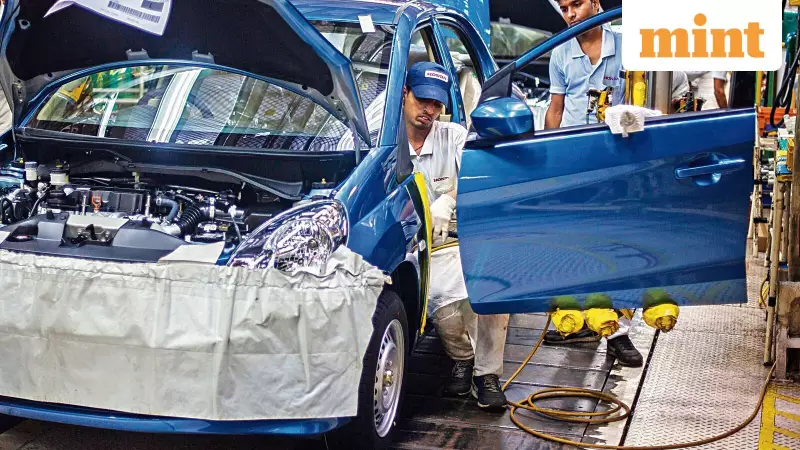
In a significant development for India's electric vehicle (EV) sector, the Ministry of Heavy Industries (MHI) is planning a substantial reduction in the budgetary allocation for the flagship Production Linked Incentive (PLI) scheme for automobiles for the fiscal year 2025-26 (FY26). The allocation is set to be lowered to approximately ₹2,000 crore from the initially planned ₹2,800 crore, a move prompted by the actual claims received from manufacturers.
Budgetary Recalibration Based on Actual Claims
According to officials familiar with the matter, MHI is currently engaged in budgetary consultations with the finance ministry to formalize this adjustment. The decision stems from a clearer picture of the incentives claimed by automakers for their zero-emission vehicle sales. "The budgetary allocation was about ₹2,800 crore for this fiscal year. In discussions with the finance ministry, MHI has requested that the allocation be lowered to about ₹2,000 crore, maybe about ₹2,030-2,050 crore. Now that claims have come in from manufacturers, the picture is clearer," revealed a person on condition of anonymity.
The ₹25,938-crore PLI-Auto scheme, launched in 2021, is a cornerstone of the government's strategy to boost the domestic manufacturing of electric vehicles and their critical components. It provides financial incentives to companies manufacturing zero-emission vehicles across all segments.
Major Beneficiaries and Disbursement Scale-Up
Domestic EV giants Tata Motors and Mahindra & Mahindra have emerged as the largest claimants for the incentives in FY26, based on their sales performance in the previous fiscal year. Sources indicate that Tata Motors, encompassing both its passenger and commercial vehicle divisions, has claimed approximately ₹400 crore. Mahindra & Mahindra has sought incentives worth around ₹280 crore.
This marks a significant scaling up of the scheme in its second year of disbursement. In the first year, the government disbursed a modest ₹322 crore to four companies: Tata Motors, Mahindra & Mahindra, Ola Electric, and Toyota Kirloskar Auto Parts. The projected disbursal of around ₹2,000 crore for FY26 signals the scheme's transition into a more mature phase. This projection was earlier hinted at by Union Heavy Industries and Steel Minister H.D. Kumaraswamy, who stated that nine companies were expected to receive sops amounting to about ₹2,000 crore in FY26.
Challenges and Strategic Impact
Despite the positive momentum, the primary challenge for companies remains the scheme's stringent eligibility criteria. The policy mandates a 50% domestic value addition (DVA), a high threshold that has been difficult for many to meet. This challenge has been exacerbated by global supply chain disruptions, such as the recent shortage of rare earth magnets due to export controls from China, which forced Indian automakers to seek exemptions.
However, the increased disbursal is a positive signal for the financial health of automakers' EV divisions. Experts note that PLI incentives can significantly improve the profitability of these capital-intensive projects. Randheer Singh, former director of electric mobility at NITI Aayog, explained that these incentives can boost the internal rate of return for advanced mobility projects by 200-350 basis points.
"The step-up signals that the Production Linked Incentive framework for the automobile and advanced chemistry cell ecosystem is now moving from an approvals phase to a serious claims and disbursal phase," Singh, now CEO of ForeSee Advisors, stated. He added that the first year involved essential groundwork for validation and compliance, and the scheme is now yielding tangible results based on actual production and local value addition.
The scheme, which will run for five years until FY29, has approved 18 out of the 82 shortlisted companies as 'Champion OEMs' and 'Component Champions' eligible for incentives. These beneficiaries can claim approximately 13-18% of the value of their incremental sales compared to the base year of FY20, with a cap of ₹6,400 crore per company.






